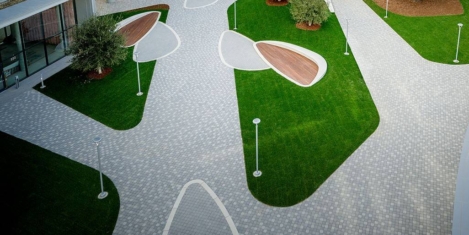November 26, 2018
The meaning of life, the Black Mirror of Beijing, standing desks not a silver bullet and some other stuff
 So, what is the meaning of life? According to a study by Pew, the gold standard US based researchers, it’s spending time with family and friends, reading, listening to music and going for a walk in the open air. Work comes somewhere down the list. Just one-third of the survey’s respondents mentioned their career or job as a source of meaning, and only a quarter cite finances or money. This, it turns out, is not too far off Monty Python’s conclusion in their eponymous film: Try and be nice to people, avoid eating fat, read a good book every now and then, get some walking in, and try and live together in peace and harmony with people of all creeds and nations. That’s that sorted then.
So, what is the meaning of life? According to a study by Pew, the gold standard US based researchers, it’s spending time with family and friends, reading, listening to music and going for a walk in the open air. Work comes somewhere down the list. Just one-third of the survey’s respondents mentioned their career or job as a source of meaning, and only a quarter cite finances or money. This, it turns out, is not too far off Monty Python’s conclusion in their eponymous film: Try and be nice to people, avoid eating fat, read a good book every now and then, get some walking in, and try and live together in peace and harmony with people of all creeds and nations. That’s that sorted then.


































November 18, 2018
What The Midwich Cuckoos can teach us about Millennials
by Mark Eltringham • Comment, Workplace
John Wyndham’s 1957 novel The Midwich Cuckoos is the story of a fictional English village in which, following an unexplained event that causes everybody within Midwich to fall unconscious, all of the women in the village fall pregnant and 61 children are subsequently born all at the same time. The children bear absolutely no physical resemblance to their parents, with pale skin, blond hair and piercing eyes. As they grow older it also becomes apparent that they are strange, emotionless and have a telepathic bond with each other. It’s not much of a spoiler to tell you that things don’t go well. The only rationale for what had happened to create the children in the first place is an unexplained incident of xenogenesis – the birth of offspring unlike their parents. Something similar must have happened on a global scale from the beginning of the 1980s onwards, at least based on what we are told about Millennials.
(more…)